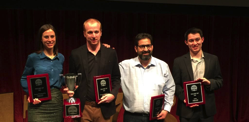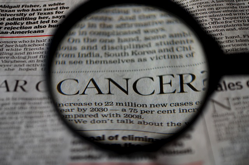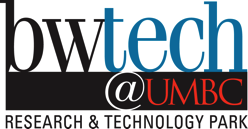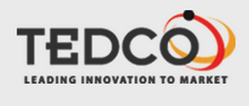
Relevant Health, a newly launched innovative health technology startup accelerator focused on bringing products to market, announced that it is now accepting applications from health tech startups for its Fall 2015 class. Additionally, the accelerator launched its website and the portal to its streamlined application process. U.S. and international startups are encouraged to apply.
Relevant Health’s five-month program involves an intensive product-focused curriculum that gives founders of health tech startups the skills to define, develop, position and launch a viable health tech product. The new accelerator will be based out of a brand-new cowork space in the Rockville Innovation Center, centrally located in the heart of the Montgomery County (Maryland) life sciences corridor. Companies admitted to the accelerator will have access to the cowork facility along with other support that includes up to $50,000 in funding, mentorship, development support from a pool of software engineers, and access to the local health tech ecosystem.

Montgomery County is already one of the country’s leading life science centers, and a Rockville business hopes to add several more companies to that community.
Relevant Health is partnering with the Montgomery County Department of Economic Development, Rockville Economic Development Inc. and others to create a health technology “accelerator,” designed to help foster life science companies.

THURSDAY, JUNE 25, 2015 8:30 am - Institute for Bioscience & Biotechnology Research (IBBR)
Manufacturing Science Analytics: Predictors of Biotherapeutic Product Quality
Industrial, federal, and academic researchers will gather to discuss the current trends in process modeling and its relation to the biotherapeutic "fingerprint." On Thursday, June 25, 2015 at 8:30 am join the thought-leaders, policy-makers, and creators of biosimilars as we present current trends, ideas, and predictions.

Wednesday, June 10, 2015 from 3:30 PM to 5:00 PM (EDT)
Tech Transfer Speakers Series Free monthly program offered through the Gateway to Innovation: Montgomery Welcome Center for Federal and Academic Tech Transfer. For more information and additional calendar items, please visit TechTransferConnection.com. Engage with others in the tech transfer field by joining the Gateway to Innovation LinkedIn Group. Brought to you by: Montgomery County...

BioHealth Innovation, Inc. (BHI), a public-private partnership and innovation intermediary is seeking an energetic and motivated life science professional for the role of an Entrepreneur-In-Residence (EIR) with product development experience and subject matter expertise in the fields of neurology and neuroscience. The EIR will reside within the National Institutes of Health (NIH) and will also support intramural and extramural initiatives on an as needed basis.
The EIR program was established at BioHealth Innovation to:
- Retain and bring entrepreneurial talent to the Maryland ecosystem
- Connect resources including institutions, technology assets, people and capital within Maryland that include federal institutions, labs, academic institutions, small businesses, disease foundations and the investor community
- Build/support sustainable life science startups that will add value within the healthcare system and also build upon the existing infrastructure
The EIR will work with BHI leadership to ensure that the activities and outcomes are aligned with BHIs strategic focus.

Six months after the search began, 1776 is proud to announce that judges selected Twiga Fruits as the 2015 Challenge Cup Champion.
Twiga has created a market solution to solve the problem of rising food prices across Africa. Its solution offers farmers a formal guaranteed prices, handles the produce with care to eliminate loss and delivers directly to thousands of independent kiosks

The statistics are staggering: 1 in 2 women and 1 in 3 men will be diagnosed with cancer in their lifetime. This means that cancer will very likely affect each and every one of us at some point in our lives -- whether it is through our own personal diagnosis or through that of someone we love. In light of this, I'd like share eight things that we as survivors and potential targets of this disease need to know.

The region's biggest venture capital raise of the year belongs to RegenxBio.
The Rockville-based biotech company has closed a $70.5 million Series D round led by new investor Vivo Capital, a Silicon Valley health care backer, and existing investors Venrock and Brookside Capital.

QIAGEN today announced the opening of its new principal office in Malaysia to serve its growing base of customers for Sample to Insight solutions, enabling them to help fight diseases using molecular diagnostics, break new ground in research for the life sciences and pharmaceutical industry, and protect the public through food safety and forensics testing applications.

Funding: Biotechnology Investor Incentive Tax Credit (BIITC)
Maryland’s Biotechnology Investment Incentive Tax Credit (BIITC), created to assist the state’s early stage life sciences companies raise funding, is one of the most generous programs of its kind in the country. The program provides refundable income tax credits equal to 50% of an eligible investment to investors in qualified Maryland biotechnology companies (QMBCs). Although recipient companies must be based in Maryland, investors from outside the State (including outside the U.S) are encouraged.
Investments from $25,000 to $500,000 per individual investor are eligible, with a company limit of 15% of the annual budgeted credit amount ($1,800,000 of credit per company in FY2016 [July 1, 2015 - June 30, 2016]). To date, 75 companies have taken advantage of the program, receiving $69M in credits and later $450M+ in follow on investment.

When this year’s winners of the InvestMaryland Challenge were announced, Bricata stood out.
Amid the Maryland companies who finished atop the Maryland Department of Business and Economic Development competition, the cybersecurity company was listed as hailing from Vienna, Va.

The NIH has jumped onto the whole startup challenge-meets-accelerator trend – using it as a way to galvanize the private sector into licensing the government’s own technology.
It recently announced the winners of its Neuro Startup Challenge – a competition in which teams of students from various universities were tasked with with building out business plans around the NIH’s intellectual property. The teams worked to find ways to commercialize predetermined therapeutics, diagnostics and medical devices sanctioned by the government for startup use.

Baltimore entrepreneurs cleaned up at the Maryland Technology Development Corp.’s annual ICE Awards, which recognize some of TEDCO’s most successful portfolio companies.
Analytical Informatics, Lookingglass and Opiatalk CEO Tom Popomaronis, all based in Baltimore, took top honors for innovation, corporate excellence and entrepreneurship.

Baltimore City was among five urban locales to be selected for the first-ever City Accelerator initiative.
Run by Citigroup’s Citi Foundation and Living Cities, the initiative is providing money to five cities in order to promote innovation in local government.

Annapolis, Maryland - Speaking proposals are now being accepted for the 2015 CyberMaryland Conference, held October 28-29 in Baltimore, Maryland. This year's theme, "Leading the Cyber Generation," offers unparalleled opportunities that demonstrate how continuing development of cyber assets on the human and technological side will drive business and job growth.
CyberMaryland Conference seeks presenters with new ideas in the areas of cyber workforce development, threat intelligence, innovation and policy. Case studies in cyber product integration, social applications, digital health and wireless technology security, big data analytics and intrusion software are highly valued. In addition to topics related to intrusion software, trends in anti-malware software and new data protection applications are sought.

Donna Harris reaches for her bag, which is slumping against an overstuffed beige couch in the basement kitchenette of a Washington, D.C., theater.
“I’ll be back,” she calls to her business partner, Evan Burfield, a tall 38 year old whose forearm tattoo is hidden under a checkered shirt sleeve. He’s sitting at a nearby lunch table, simultaneously checking email and interrogating a nervous entrepreneur about revenue projections.

Pharma firms need better incentives to create novel antibiotics to head off an ‘apocalyptic scenario’ where commonplace infections become deadly once more. And the latest report from economist Jim O’Neill, who has been commissioned by the UK government to investigate how to tackle antimicrobial resistance (AMR), offers two ways to make developing antibiotics more attractive to industry. He recommends rewarding firms that develop a new antibiotic with a substantial lump sum. Secondly, a global innovation fund should be set up with $2 billion (£1.3 billion) to be invested over five years to boost blue skies research into drugs and diagnostics. But questions remain over how to run such a scheme and where the money would come from.

Yet another report’s pointing out biotech’s bullish venture appeal – and how medical device investment continues to flag.
In fact, biotechnology funding for human therapeutics is so strong that its venture funding outpaces pharmaceuticals sevenfold, a PricewaterhouseCoopers venture analysis of the first quarter of 2015 life sciences sector found.

The U.S. congress has proposed budgets cuts for research, but more and more scientists are turning to crowdfunding to bring their projects to light.
On May 20, 2015, the US House Republicans voted to place limits on funding for scientific research. The bill, which passed 217 votes to 205, still has to through the Senate, but it sets an ominous tone for future research.